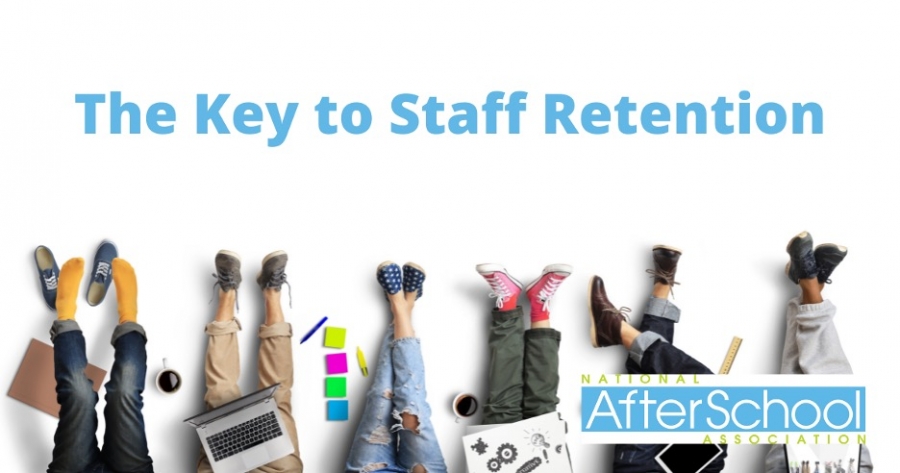These NAA22 sessions present strategies that support the creation of appreciation, collaboration, and authentic relationships that lead to staff retention.
Not Your Mother's Individual Professional Development Plan: To help ensure recruitment and retention of quality staff, participants will actively participate in establishing Individual Professional Development Plans that emphasize positive attributes. These attributes and personal/professional goals can be measured and will benefit the leader and the program. This session will include templates for IPDPs, goal setting and tracking, and more.
Facilitated by: Brittani Forgey, Kande Jones
Building a Culture of Curiosity for Program Staff: The need for closing the feedback loop with program staff is crucial. Their participation in the evaluation process adds richness and depth that foster buy-in and program participation. Engaging program staff in collecting and sharing data can typically be limited to management and, most often, decision-makers. Data Reflection Sessions (DRS) are a strong strategy aimed to involve program staff and collaborative organizational learning. Using discussion, coaching, and analysis, we produce collaboration and confidence based on the data collected, arming staff with the tools and mechanisms to maintain and/ or increase program quality. A DRS is used for problem-solving, driving professional development, and increasing staff retention by supporting the effective use of data to drive decisions for the program and throughout the organization.
Facilitated by: Shelby Feliciano-Sabala
Leadership Requires Resiliency, Relationships, and Reflection: The collective trauma of the last two years has changed the way we live, work and educate our young people. Learn how to apply social-emotional learning to develop your own and your team’s resiliency and emotional intelligence for long-term organizational success. Using the CASEL® framework and other research, participants will define their own settings and development for social-emotional competencies. Two case studies will explore how to keep yourself and staff engaged by embedding SEL practices into meetings, trainings, and one-on-one conversations. Take back an individual and team plan based on trauma-informed SEL practices to improve relationships, staff retention, and child outcomes. Through discussion, hands-on activities, and real-time implementation, participants will learn how to use these strategies to stay centered during constant change and refocus on their “why.”
Facilitated by: Larry Taylor, Lisa Rice, Tamara Payne-Alex
Superpowers for Supervisors: In this session, emerging and current leaders will discuss and troubleshoot the challenges of management and leadership in the youth development and afterschool sectors. Before the pandemic, managing was already hard. And now, in many ways, managing and motivating teams is harder than it has ever been. Join this Salon to dig deep, process emotions after a difficult year, and share practices that elevate supervisors to superheroes! Participants in the Superpowers for Supervisors PLC cohort are encouraged to attend, but participation in that experience is not required!
Facilitated by: Marissa Badgley
Wear your SCARF - Learn to manage your treat responses: Let's face it. Leaders are challenged with motivating, inspiring, evoking collaboration among their teams, but this is not an easy task—the balancing act of managing colleagues' perspectives and emotions while managing our feelings and emotions can feel like a tightrope act. Workshop topics will include status (our relative importance to other people), certainty (our ability to predict the future), autonomy (our sense of control over events), relatedness (how safe we feel with others), fairness (how fair we feel the exchanges between people to be). The SCARF model improves communication with others and builds self-awareness.
Facilitated by: Tiana Brown
The Touchback Session: Group Support & Co-Learning: We know that professional development cannot be a "one and done." To deepen understanding, commitment, and implementation of a desired framework or initiative, the use of a Touchback session has been found to be highly successful in a layered approach to implementation. A Touchback session is a quick, professional development session designed to engage group support and co-learning, centering those with first-hand experience with implementation. The Touchback session is a must for any initiative that requires a change in practice and/or behaviors!
Speaker: Nikki Roe Cropp
You don’t want to miss this time to gather in unity, with community, and for opportunity! Register for NAA22 today!

